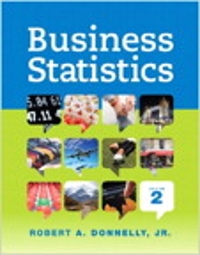Question
Ian was marketing and sales director for 3CA, responsible for increasing sales across all market sectors in Australia. 3CA was an international organisation with offices
Ian was marketing and sales director for 3CA, responsible for increasing sales across all market sectors in Australia. 3CA was an international organisation with offices in Europe, Australia, New Zealand, Singapore, and Malaysia. Each country office operated largely independently, but they were encouraged by the global executive to co-operate where clear synergies were identifiable.
Nine months previously, the country CEOs for Australia and New Zealand met at a conference. The New Zealand CEO expressed serious interest in the customer relationship management (CRM) system that Ian and his team had recently designed and implemented in Australia. Implementation of the system was believed to have contributed to an 8-10% improvement in customer retention over a 12-month period, and the system had been recognised as outstanding by marketing industry associations. Ian was regularly called on to talk about his work at industry events. The Australian CEO volunteered Ian to work with his counterpart in New Zealand to explore the potential benefits of implementing the system in New Zealand.
Ian approached the task with great enthusiasm, but found his counterpart, a woman named Anna Williams, to be less enthused. She believed that their existing systems were fit for purpose and that to embark on a new systems implementation project would be a distraction to the business. She was nevertheless instructed by her CEO to participate in a joint study. In the early stages of the project Ian quickly realised that the Australian system would be relatively easy to install and would probably deliver similar benefits in New Zealand to those delivered in Australia. The biggest piece of work would be helping sales and marketing staff to understand how best to utilise the system, rather than the installation of the system itself.
Anna did not put much effort into the project, but nor did she present any obstacles, allowing Ian to talk to all of her staff, most of whom became excited at the prospect of being able to work with the new system. At the end of six months Ian prepared a preliminary report outlining benefits, drawbacks, and risks attached to installing the new system. The report made an overwhelming case for moving ahead with implementation. Anna did not contribute much to the writing of the report, though Ian provided her with every opportunity to do so. Shortly before the report was completed, Anna went on maternity leave and was unavailable to sign the report.
Ian nevertheless submitted the report to his COO who, he assured Ian, forwarded the report on to the Australian CEO. Three months later, Ian had received no feedback from the COO or CEO. He asked the COO several times for an update but had been told that the company had other immediate priorities. He would receive feedback on the report after the executive team had time to address it.
Meanwhile Ian was being pressed by his staff and Anna's staff in New Zealand. They all recognised the benefits of rolling out the system across both countries and felt they had invested significant time in contributing to the development of the business case. They were beginning to question Ian's capacity to influence senior management, and morale appeared to have deteriorated, particularly in New Zealand. Ian's employee engagement scores declined by 7% year-on-year, indicating declining employee motivation.
To make matters worse, Ian had heard from one of his biggest clients just that morning, that their New Zealand business was impatient to take advantage of the benefits the system would bring. If implementation was so straightforward, why did they not just get on with it? Ian feared that other stakeholders might also see the project simply as a hardware roll-out. Most of the work would be redesigning processes.
Ian was concerned that his low engagement scores would impact his career prospects and he also worried that his reputation in the business and with clients had been compromised. Ian's team encouraged him to keep pressing the COO and to approach the CEO directly. But Ian enjoyed a good relationship with both executives and did not want to start nagging for fear of those relationships deteriorating. Yet he felt he was going to have to approach them again, and needed to decide when and how to do so, and what to say.
Based on the above case study. What perspective did Anna take to resistance, and what implications did this have?
Step by Step Solution
There are 3 Steps involved in it
Step: 1

Get Instant Access to Expert-Tailored Solutions
See step-by-step solutions with expert insights and AI powered tools for academic success
Step: 2

Step: 3

Ace Your Homework with AI
Get the answers you need in no time with our AI-driven, step-by-step assistance
Get Started


